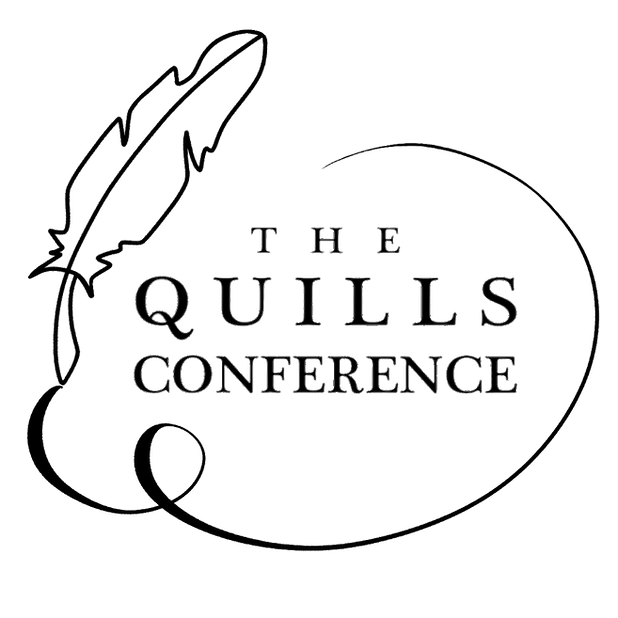The League of Utah Writers recently had a hybrid convention. I “attended” virtually and, though I’d have liked to have been there in person for some of the sessions that didn’t get recorded, I did have fun and learn a good bit.

One session I enjoyed was “Be a Poet Even in Prose” by Lance Larsen. The original quotation was by Charles Baudelaire. Larsen suggested 12 ways to “Writing Jaw-Dropping Sentences:”
- Cower at Cliches: avoid using tired old ways of describing things and strive for originality instead. We are given a description of a movie (High Octane) to show us how cliche makes us cringe. “In the world of racing, there are no rules and adrenaline is the only name of the game. When bad boy Brent Black discovers the fun but dangerous ways of illegal street racing, he faces a deadly challenge from a longtime rival. Does he have what it takes to win? The stakes are high and everything worth living for is on the line. But when you live life in the fast lane, anything can happen. High speed, high risk, High Octane.”
- Caress Detail Instead: Use your senses to describe your imaginary world so your readers can actually picture it instead of cringing at a cliche. Larsen gives us a section of Alice Walker’s Everyday Use to show how detailed description can make a prose section into what’s nearly a poem: “In real life I am a large, big-boned woman with rough, man-working hands. In the winter I wear flannel nightgowns to bed and overalls during the day. I can kill and clean a hog as mercilessly as a man. My fat keeps me hot in zero weather. I can work outside all day, breaking ice to get water for washing. I can eat pork liver cooked over the open fire minutes after it comes steaming from the hog.”
- Freight Your Sentences with Conflict: Poetry is about emotion, and you should remember to add that into your prose as well.
- Let Music Trump Truth: use poetic rhythms and word choices. “Oh it was gorgeousness and gorgeosity made flesh. The trombones crunched redgold under my bed, and behind my gulliver the trumpets three-wise silverflamed, and there by the door the timps rolling through my guts and out again crunched like candy thunder. Oh, it was wonder of wonders. And then, a bird of like rarest spun heavenmetal, or like silvery wine flowing in a spaceship, gravity all nonsense now, came the violin solo above all the other strings, and those strings were like a cage of silk round my bed. Then flute and oboe bored, like worms of like platinum, into the thick thick toffee gold and silver. I was in such bliss, my brothers.” (Anthony Burgess, A Clockwork Orange)
- Taste Your Way, as if Blind: Use all of your senses, not just sight. Try to include at least one other sense in your descriptions, so the readers will forever remember the sound or smell or taste or feeling of your world.
- Impose Pattern: “. . .this is how you set a table for lunch; this is how you set a table for breakfast; this is how to behave in the presence of men who don’t know you very well, and this way they won’t recognize immediately the slut I have warned you against becoming; . . . don’t throw stones at blackbirds, because it might not be a blackbird at all; this is how to make a bread pudding; this is how to make doukona; this is how to make pepper pot; this is how to make a good medicine for a cold; this is how to make a good medicine to throw away a child before it even becomes a child; this is how to catch a fish . . . ” (Jamaica Kinkaid, “Girl”)
- Squeeze the Lard from Your Sentences: cut the excess verbiage and keep your sentences tight and spare, like the lines of a poem.
- Metaphor Things Up: use unexpected metaphors and similes; startle your readers with your descriptions.
- Let Voice: give your characters and narrators unique voices. “We’re going to run home backwards and we’re going to run home frontwards, look twice under the house where the rats hide and I’ll stick one foot in there because you dared me, sky so blue and heaven inside those white clouds. I’m going to peel a scab from my knee and eat it, sneeze on the cat, give you three M & M’s I have been saving for you since yesterday, comb your hair with my fingers and braid it into teeny-tiny braids really pretty. We’re going to wave to a lady we don’t know on the bus. Hello! I’m going to somersault on the rail of the front porch even though my chones show. And cut paper dolls we draw ourselves, and color in their clothes with crayons, my arm around your neck.” (Sandra Cisneros, “My Lucy Friend who Smells Like Corn”)
- Say it Brokenly. don’t be afraid to use broken sentences and fragments for emphasis. “Me and Sugar at the back of the train watchin the tracks whizzin by large then small then getting gobbled up in the dark. I’m thinkin about this tricky toy I saw in the store. A clown that somersaults on a bar then does chin-ups just cause you yank lightly at his leg. Cost $35. I could see me askin my mother for a $35 birthday clown. ‘You wanna who that costs what?’ she’d say, cocking her head to the side to get a better view of the hole in my head.” (Toni Cade Barbara, “The Lesson”)
- Syntax and Sentence Length–Mix These Up: Make sure your sentences aren’t all one long drone. “They march for the sake of the march. They plodded along slowly, dumby, leaning forward against the heat, unthinking, all blood and bone, simple grunts, soldiering with their legs, toiling up the hills and down into the paddies and across the rivers and up again and down, just humping, one step and then the next and then another, but no volition, no will, because it was automatic, it was anatomy, and the war was entirely a matter of posture and carriage, the hump was everything, a kind of inertia, a kind of emptiness, a dullness of desire and intellect and conscience and hope and human sensibility. Their principles were in their feet. Their calculations were biological.” (Tim O’Brien, “The Things They Carried”)
- Plumb the Unknown: “Once there were brook trout in the streams in the mountains. You could see them standing in the amber current where the white edges of their fins wimpled softly in the flow. They smelled of moss in your hand. Polished and muscular and torsional. On their backs were vermiculate patterns that were maps of the world in its becoming. Maps and mazes. Of a thing which could not be put back. Not be made right again. In the deep glens where they lived all things were older than man and they hummed of mystery.” (Cormac McCarthy, The Road)
The session also noted that there are four types of prose, taken from David Huddle’s The Writing Habit:
Basic Prose: Shows “no particular connection to subject matter. As we go up the evolutionary scale in categories of prose, we find that the relationship between language and subject matter deepens, intensifies.” (Indifference to language as a stylistic element)
Window-Pane Prose: “Here language is utterly fundamental. Language is on the page only for the purpose of allowing the reader access to the experience of the fiction. It stays out of the way. . . Window-Pane Prose writers depend on the human drama to carry their stories; their discipline is a particularly saintly one: they must be so fluid, deft, and precise that no one notices their work, the making of the sentences through which the reader ‘sees’ the story.” (Language used as a vehicle to reveal content. Like looking through a clean window to what’s on the other side.)
Personable Prose: “ . . .language with definite personality, and that personality becomes a part—usually a somewhat small part—of the story. Sometimes we think of the personality of the prose as the ‘voice’ of the author…[or] connected with the personality of a character in the story. One of the main advantages of Personable Prose is that the reader will be attracted to the personality of the language.” (Language and content work hand in glove, the voice often becoming part of the content.)
Mega-Prose: Prose marked by “heightened language, language of greater density and energy, more pronounced rhythmic qualities, richer textures of sound. Mega-Prose aims for intensity. Mega-Prose, like Personable Prose, reflects personality, but in this case personality has been souped up. The quality of mind it reflects is quickness, allusiveness, quirkiness, liveliness in general.” (Language and style become more important than content, how one says a thing eclipsing the thing said. Language becomes its own pursuit.)
